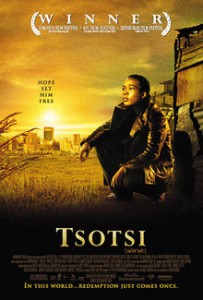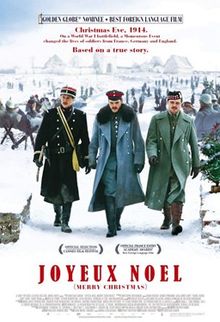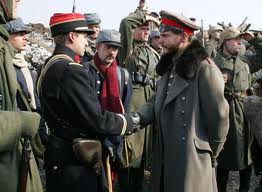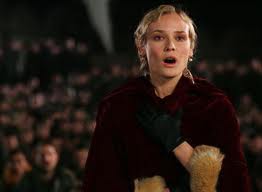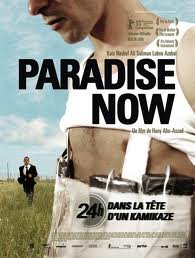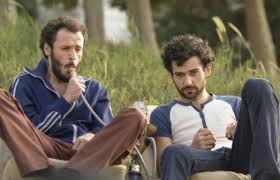 Reyhan ran a café with her husband in the northern part of Iran near the Turkish national border that served truck drivers crossing the national border. After the death of Reyhan’s husband, her brother-in-law Nasser, in accordance with this area’s custom of the widow marrying her husband’s brother, tells Reyhan to move into his house. Reyhan refuses to move into the addition to Nasser’s house he has prepared for her, and instead decides to reopen the café with her husband’s employee, Oujan. Reyhan’s café becomes popular for its delicious food with the foreign truckers that cross back and forth over the national border, and truckers line up to be served food.
Reyhan ran a café with her husband in the northern part of Iran near the Turkish national border that served truck drivers crossing the national border. After the death of Reyhan’s husband, her brother-in-law Nasser, in accordance with this area’s custom of the widow marrying her husband’s brother, tells Reyhan to move into his house. Reyhan refuses to move into the addition to Nasser’s house he has prepared for her, and instead decides to reopen the café with her husband’s employee, Oujan. Reyhan’s café becomes popular for its delicious food with the foreign truckers that cross back and forth over the national border, and truckers line up to be served food.
A Greek driver Zakario and Reyhan grow fond of each other, and Reyhan shelters Svieta, a Russian girl whose family was murdered in the Russian Civil War; eventually, Nasser resorts to legal means to close down the café in fear that, by allowing a woman work, his family name will be damaged. In addition, Zakario is hurt by a man sent by Nasser. The movie ends with Reyhan closing her café, and we don’t know what happens to her after that, but she certainly doesn’t live under the same roof as Nasser, and she doesn’t accept Zakario’s love. At the movie’s end, Nasser sadly mutters, “Why does Reyhan hate me? I just want to protect her,” and it is suggested that Reyhan’s fate was never what Nasser wanted.
Every year for the Academy Award for Best Foreign Language Film, a governmental organization of each country can recommend only one piece from their country to be considered for nomination. For example, in Japan, the non-profit organization, Motion Picture Producers Association of Japan—under the Ministry of Economy, Trade, and Industry—selects one movie to represent Japan. When considering the political situation of Iran after the Islamic Revolution, I am impressed with the freedom to make movies like this one that bring up social issues in Iran, and moreover, the government endorsed this movie by entering it into the competition for the Best Foreign Language Academy Award.
However, if you look carefully, this movie is not criticizing the government. From the outside, we tend to see all problems as being the fault of that country’s government, but the core of this movie is the struggle of a strong, independent-minded woman fighting against tradition and the difficulty of being economically independent. There may be no reason for a government to ban a movie that brings up such a social issue. Because this particular custom is depicted as being unique to this local area, there is nothing that damages the Iranian government. To put simply, making a movie like this is possible as long as it doesn’t criticize the Iranian government or doesn’t depict information that shouldn’t be revealed. Nasser never treats Reyhan cruelly, and he is simply trying to take care of Reyhan with good intentions, so he doesn’t understand why Reyhan doesn’t accept his good will. Regarding the financing of movies, there seem to be many companies that are willing to invest in the making of movies that depict the current life in Iran, which is a country that is known for its very interesting and sophisticated culture. In fact, this movie is a collaboration between Iran and France.
Another thing that mustn’t be overlooked in this movie is the “refugees issue.” When Reyhan accepts the young woman who is a refugee from Russia, she states that she herself is a refugee. Where did she escape from?
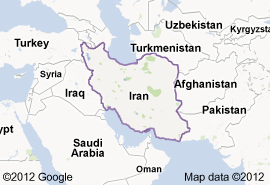 It is said that throughout a long chaotic period—from the invasion of Afghanistan by the former Soviet Union in ’79, to the Gulf War, to the Iraq War—as many as 4,500,000 refugees from neighboring countries to the east and the west flowed into Iran. Many of these were Afghan refugees, but there were also refugees from Iraq. Depending on where they lived, Afghan refugees escaped to either Pakistan or Iran, but most Afghan refugees that settled in Iran had lived east or south of Tehran. Guessing based on the location of this movie, it is most likely that Reyhan is a refugee from Iraq.
It is said that throughout a long chaotic period—from the invasion of Afghanistan by the former Soviet Union in ’79, to the Gulf War, to the Iraq War—as many as 4,500,000 refugees from neighboring countries to the east and the west flowed into Iran. Many of these were Afghan refugees, but there were also refugees from Iraq. Depending on where they lived, Afghan refugees escaped to either Pakistan or Iran, but most Afghan refugees that settled in Iran had lived east or south of Tehran. Guessing based on the location of this movie, it is most likely that Reyhan is a refugee from Iraq.
It isn’t clearly stated where the Russian woman came from, but it is very likely she is a refugee escaping from the civil war that occurred from 1992 to 1997 after the Republic of Tajikistan gained independence from Russia in 1991. People from Tajikistan speak Russian as well as a language close to Persian. In this movie, Reyhan is not able to converse with Svieta, but the café employee Oujan understands Svieta’s language, and acts as a translator for Reyhan. In the Republic of Tajikistan, the majority is Tajik, but there are also Russians. It is said that most Russians left due to the civil war.
While at this café, drivers are able to communicate with each other without much difficulty, even though they are from various places including Turkey (Turkey maintains fairly good relations with Iran), Hungary (there seem to be many people from Hungary that work away from home in Turkey), and Greece (Greece is Turkey’s neighbor, and their culture is very similar). Watching this movie, I felt the robustness of Iranians (and neighboring ethnicities) who can utilize their communication skills to live in the junction between the east and the west—which is very different than Japan, an island where most people can only speak Japanese.

